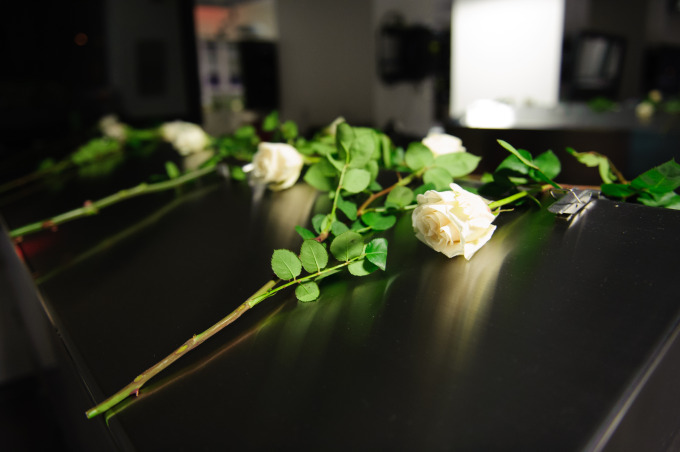
Get the latest articles delivered directly to your inbox!
Our Contributors
Class of 2022
Kyle Duke
Austin Foster
Charlotte Leblang
Ross Lordo
Class of 2021
Dory Askins
Connor Brunson
Keiko Cooley
Mason Jackson
Class of 2020
Megan Angermayer
Carrie Bailes
Leanne Brechtel
Hope Conrad
Alexis del Vecchio
Brantley Dick
Scott Farley
Irina Geiculescu
Alex Hartman
Zegilor Laney
Julia Moss
Josh Schammel
Raychel Simpson
Teodora Stoikov
Anna Tarasidis
Class of 2019
Michael Alexander
Caitlin Li
Ben Snyder
Class of 2018
Alyssa Adkins
Tee Griscom
Stephen Hudson
Eleasa Hulon
Hannah Kline
Andrew Lee
Noah Smith
Crystal Sosa
Jeremiah White
Jessica Williams
Class of 2017
Carly Atwood
Laura Cook
Ben DeMarco
Rachel Nelson
Megan Epperson
Rachel Heidt
Tori Seigler
Class of 2016
Shea Ray
Matt Eisenstat
Eric Fulmer
Geevan George
Maglin Halsey
Jennifer Reinovsky
Kyle Townsend
Join USCSOMG students on their journeys to becoming exceptional physician leaders.

Remember Us
photo by: Wesley Parker
Remember us. It’s a simple enough request. Or is it? Recently through my experiences in the anatomy lab, I’ve learned that it is so easy to lose sight of the human part in medicine (i.e. treating patients as people and not just problems to solve). Reflecting upon my time in the lab with our cadavers, I penned this poem for the Class of 2018’s Gift of Body Ceremony, which was a time where our whole class took a moment to truly appreciate the gift our donors have given us. I hope I can continue to remember the message behind these words.
“Remember Us. For we too have lived, loved, and laughed.”
This request—this command—I find it a curious epitaph
That the one who lies beneath it would—with his last breath—
Pen these words above his head to memorialize his death.
The size of the stone is enormous, the thing must have cost a fortune
And so I’d expect a whole life story, reveling in his great deeds and glory,
But what I read is much more boring. Just these ten words, and nothing more.
Why draw our attention to the familiar, the mundane, and the ordinary?
Why not speak to your great titles, or deeds that were extraordinary?
Why not boast like we all did, interviewing for med school?
Pushing paper credentials, like, “Well, aren’t I incredible!”
But I know exactly why he wrote this. Learned it two months ago, today.
Knowing who I said was, I’m ashamed to even say
That I’m a victim of my own ambition. The soldier who forgot his mission.
Wishin’ I had contemplated what I touted to admissions.
Because somewhere along the road of books, grades, and success
I looked away from the meaningful to the meaningless.
I professed to the school to be a kind, caring man,
Full of compassion and consideration for my fellow man,
That sympathy? It left from me. My empathy turned apathy
When that syllabus grabbed me by the throat and blinded me to gross anatomy.
You see my first patient lie before me. Right there, in that laboratory.
But he was a book, a study tool, a means to an end, and nothing more to me.
We come in for two hours, do our thing, and get to studying.
With not an iota or an inkling of the sacrifice he’s making.
And then one day it hit me, a giant brick-to-the-head epiphany
What that tombstone was after was not his own glory—but my humanity.
You wonder what his name was. Wonder what he did in his spare time.
I wonder if he loved traveling as much as I do. He’d probably hate these dumb rhymes.
Could’ve been a Tiger or a Gamecock. A master of tailgatin’ trash talk.
You wonder if he could tell the best jokes; bring the whole room to tear-jerking laughter.
You wonder if his life story is full of love, or perhaps it’s much sadder.
This was someone’s father, brother. Had a sister and a mother.
He—just like us—loved and was loved by another.
He had a name, a family…hobbies and interests.
What defined him was so much more than just a diagnosis.
That’s the humanity we must maintain, and we must fight to preserve it
Because in the midst of our studies and our practice we’re prone to desert it.
What we can do today during this donor life celebration
Is admit to ourselves we need patience with patients.
We will struggle to sustain the correct patient-centered perspective
But I am grateful for the patient who my perspective corrected.
Join me in appreciation of our first patients, our donors.
For the lives that they lived, and the lessons they taught us.
“Remember us—remember us, for we too, have lived, loved, and laughed.”
I now understand this curious epitaph.
Formerly from the Baltimore area, I graduated from Bob Jones University with a degree in pre-med. Having interacted through MedEx with the faculty and students, I knew the doctor USCSOMG wanted to graduate was the doctor I wanted to become. If I’m not hitting the books, you can probably find me spending time with my better half or on the basketball court. It is an honor and a privilege to be a member of the class of 2018, and I’m excited to share my passion for global health, children’s health, and health education with my peers. “To whom much is given, much more shall be required.”
Kristin Lacey
Copyright 2021 USC School of Medicine Greenville


